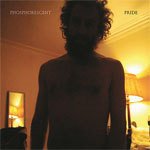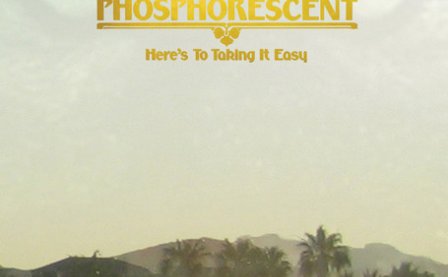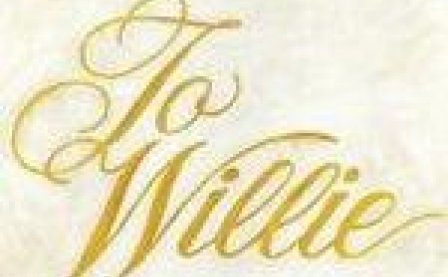Dead Oceans, Phosphorescent's label, seems to want to make it very clear that Matthew Houck moved to Brooklyn halfway through recording Pride. It makes sense, too. There is absolutely nothing Brooklyn-sounding about this one (except perhaps allusions to the yeyo in the seventh track), but there is an undoubted corpse fidelity to things Southern, to Houck’s Alabama origins. As far as I can tell, the instrumentation is exclusively acoustic, and there’s that gorgeous Houck Tabernacle Choir, featuring coolies such as Ray Raposa, Jana Hunter, and Mr. David Longstreth. There’s also the repeated cries to the Lord and the hosanna phrasing of lines. It’s like a goddamn revival, with that same aesthetic stagnancy, too.
Houck’s found himself a sound, no doubting. The singularity of that sound is the only real problem Pride encounters. Not its singularity in the vast, dead ocean of musical sounds -- for that (when achieved) is one of the greatest gifts the Lord could ever bless one with -- but over the course of its own showcase. For all intents and purposes, Pride might as well be a single track. The nebulous lull/surge formula says hello on all the tracks save perhaps “Wolves,” which is not coincidentally the best track here. “Wolves” is also the most traditionally traditional, the only one with identifiably non-acoustic instrumentation. (Some waily guitars, if you’re curious.) The decidedly sedating sound with its ‘unclear’ MO detracts from the power of Houck’s lyrics, but this is about as far from a negative thing as you could possibly get with me.
And, let me tell you, for anything to detract from lyrics is something rare for me. When listening to an album, the lyrics are the last thing I grapple with, if I even ever acknowledge them. So, when an album’s diction actually pricks my ears, I do a bit more than just start paying attention. Simply, Pride has some of my favorite turns of phrase of the year. From the truncated, impressionistic lines of “Be Dark Night” to “Trade our teeth for rays of wheat to sleep and lay underneath” or “Born with ocean thunder underneath our veins,” the phrasing and the album itself is perfectly named with two words from “The Waves at Night”: “amazing grief.” Those two words perfectly sum up the aesthetics of the entire album. Unfortunately, it's based more in the speaking than the playing.
More about: Phosphorescent




